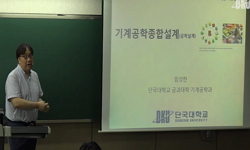This study was conducted to validate the Self-perception of Flexible Coping with Stress Scale for Korean Adolescents(SFCS-KA) by applying the Rasch measurement model considering content, substantive, structural, generalizability, and external aspects ...
http://chineseinput.net/에서 pinyin(병음)방식으로 중국어를 변환할 수 있습니다.
변환된 중국어를 복사하여 사용하시면 됩니다.
- 中文 을 입력하시려면 zhongwen을 입력하시고 space를누르시면됩니다.
- 北京 을 입력하시려면 beijing을 입력하시고 space를 누르시면 됩니다.

한국판 청소년용 스트레스 대처 유연성 척도(SFCS-KA)의 타당화 = Validation of the Self-perception of Flexible Coping with Stress Scale for Korean Adolescents(SFCS-KA)
한글로보기https://www.riss.kr/link?id=A109017075
- 저자
- 발행기관
- 학술지명
- 권호사항
-
발행연도
2024
-
작성언어
Korean
- 주제어
-
등재정보
KCI등재
-
자료형태
학술저널
- 발행기관 URL
-
수록면
87-118(32쪽)
- DOI식별코드
- 제공처
-
0
상세조회 -
0
다운로드
부가정보
다국어 초록 (Multilingual Abstract)
This study was conducted to validate the Self-perception of Flexible Coping with Stress Scale for Korean Adolescents(SFCS-KA) by applying the Rasch measurement model considering content, substantive, structural, generalizability, and external aspects of validity(Messick, 1995). Data of 1249 Korean elementary, middle, and high school students were analyzed. The results were as follows: First, the item fit statistics for each item were satisfactory. Second, the 5-point scale functioned more appropriately than the 7-point scale for all three factors(i.e., multiple coping strategy use, situational coping, and coping flexibility). Third, principal component analysis of standardized residuals demonstrated the unidimensionality of each of the three SFCS-KA subscales. Additionally, CFA showed that a three-factor model was the most favorable. Fourth, person and item reliability and person and item separation indices were of a satisfactory level. Also, the three SFCS-KA subscales did not function differently for elementary, middle, and high school levels or for male and female students. Fifth, multiple coping strategy use and situational coping were positively and negatively associated with the positive and negative criterion variables, respectively. However, for coping rigidity correlational patterns were the opposite. Sixth, Cronbach’s α for the items loading on three factors was satisfactory. Considering these findings, the SFCS-KA proved to be a reliable and valid measure of the self-perceived ability to cope flexibly with stress in Korean adolescents.
Educational Impact and Implications : The SFCS-KA can be used to identify students who are at greater risk of employing flexible coping strategies for academic stress. Thus, it will be based on future interventions aimed at promoting students’ coping flexibility in academically stressful situations. Furthermore, the SFCS-KA will provide a brief means of diagnosing students’ strengths and weaknesses in multiple coping strategy use, situational coping, and coping rigidity. Thereby, it will contribute to the development of intervention programs to capitalize on strengths and compensate for weaknesses in students’ ability to cope flexibly with academic stress.
동일학술지(권/호) 다른 논문
-
다차원 Rasch 모형을 적용한 대학생용 미래결과고려 척도의 개발과 타당화
- 한국교육심리학회
- 조한익
- 2024
- KCI등재
-
교수를 통한 학습법(learning-by-teaching)이 범주학습에 미치는 영향: 인출 정도에 따른 효과성 차이 검증
- 한국교육심리학회
- 김윤덕
- 2024
- KCI등재
-
학습무동기의 종단적 변화 양상에 따른 잠재계층 분류와 시점별 영향요인 검증
- 한국교육심리학회
- 이은주
- 2024
- KCI등재




 DBpia
DBpia



